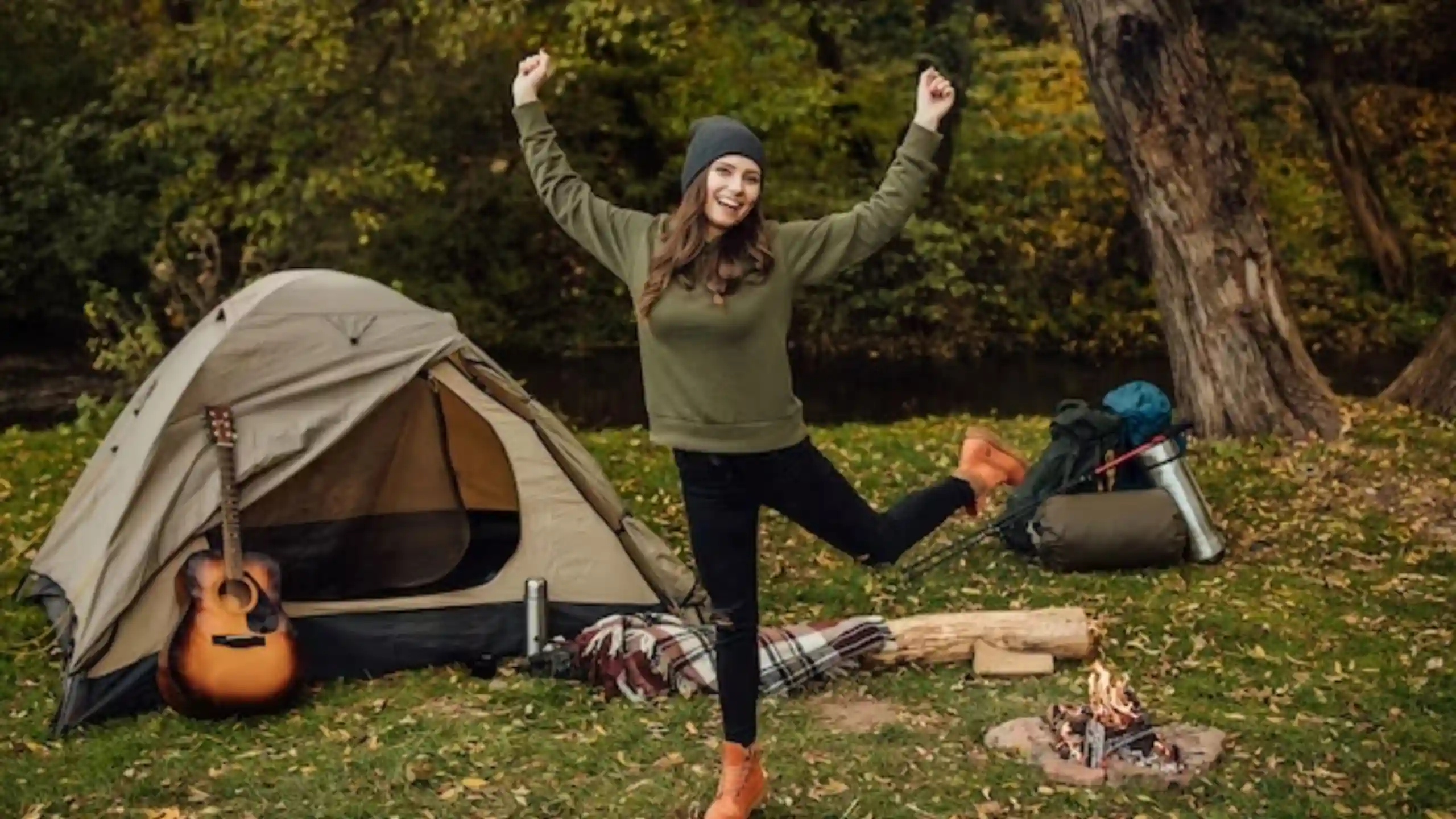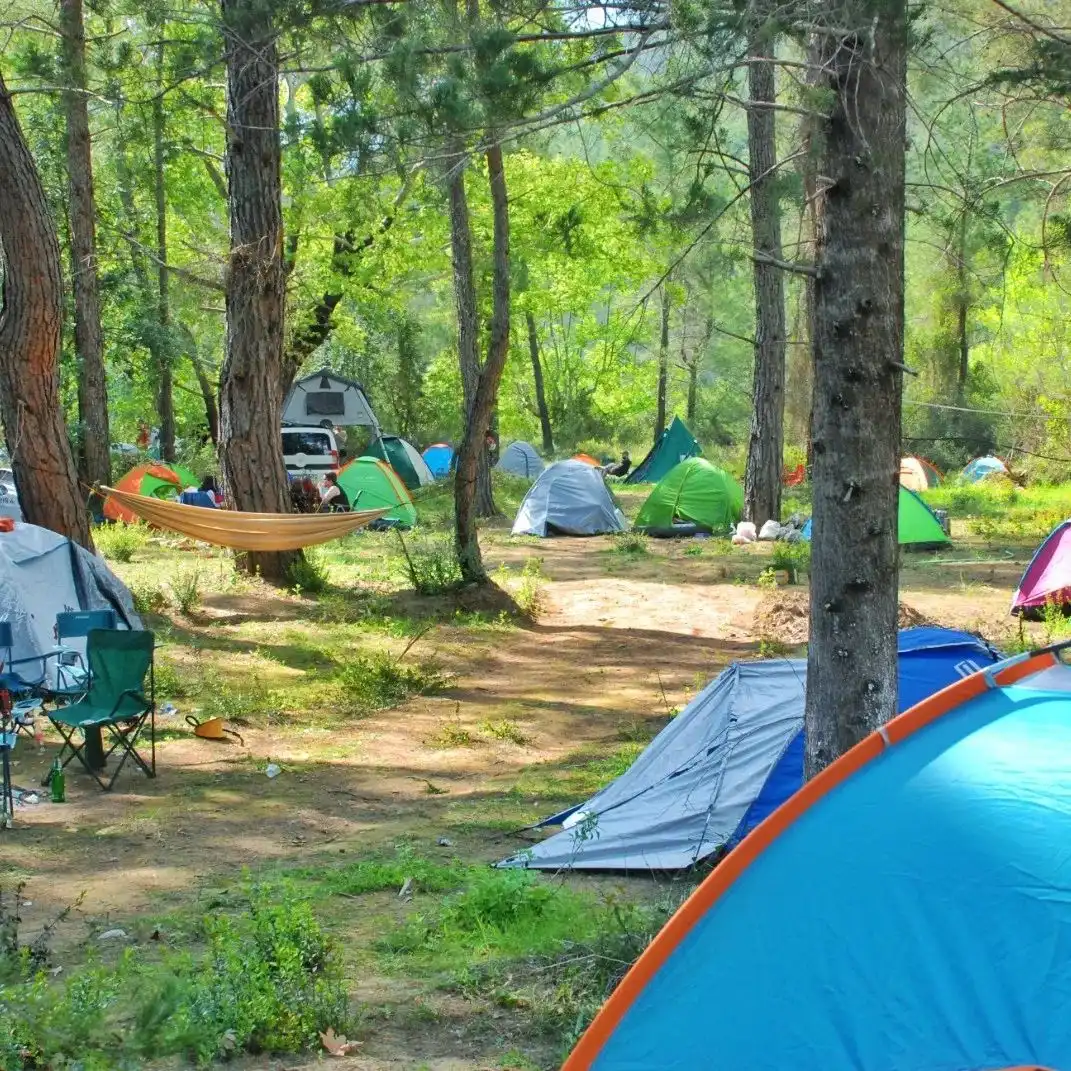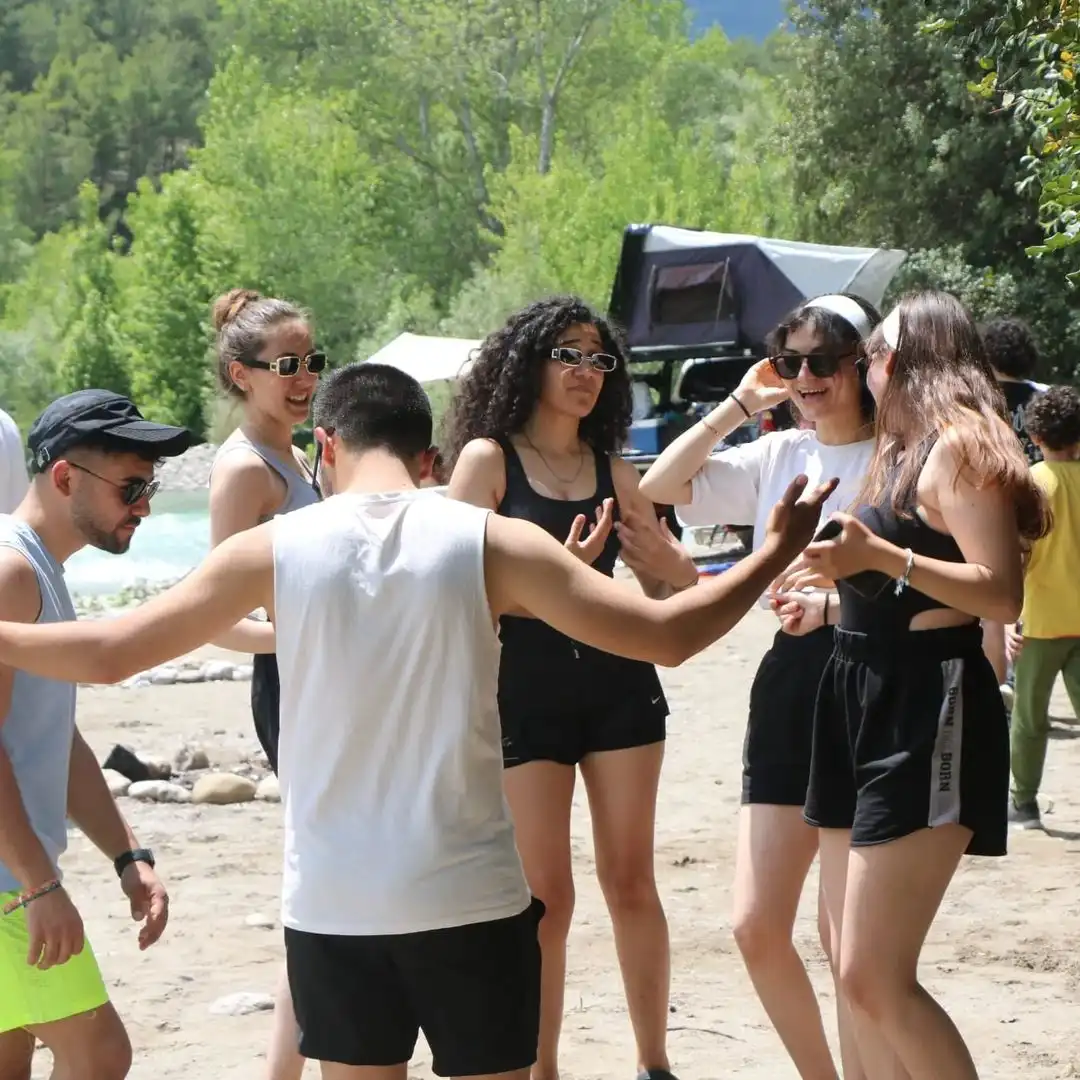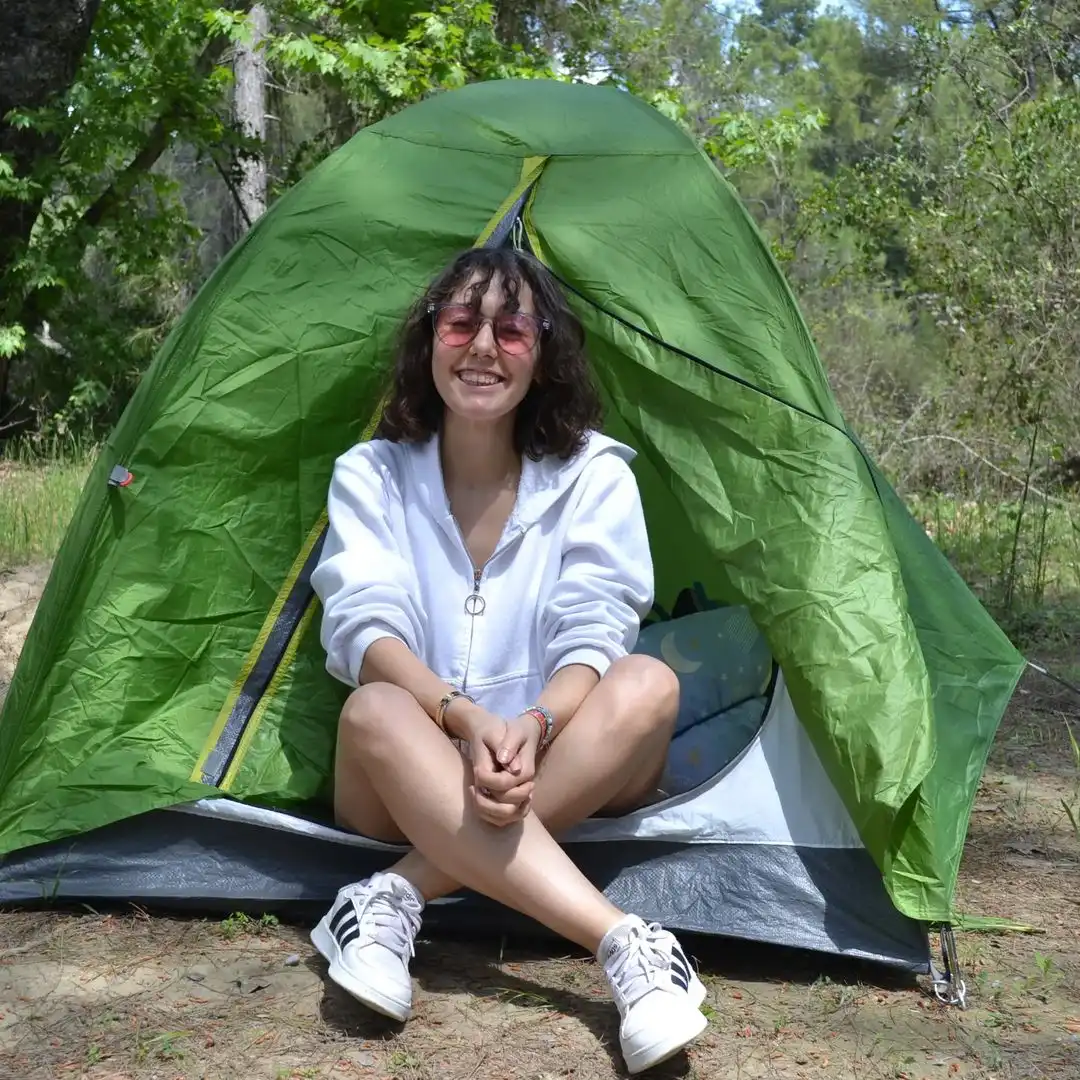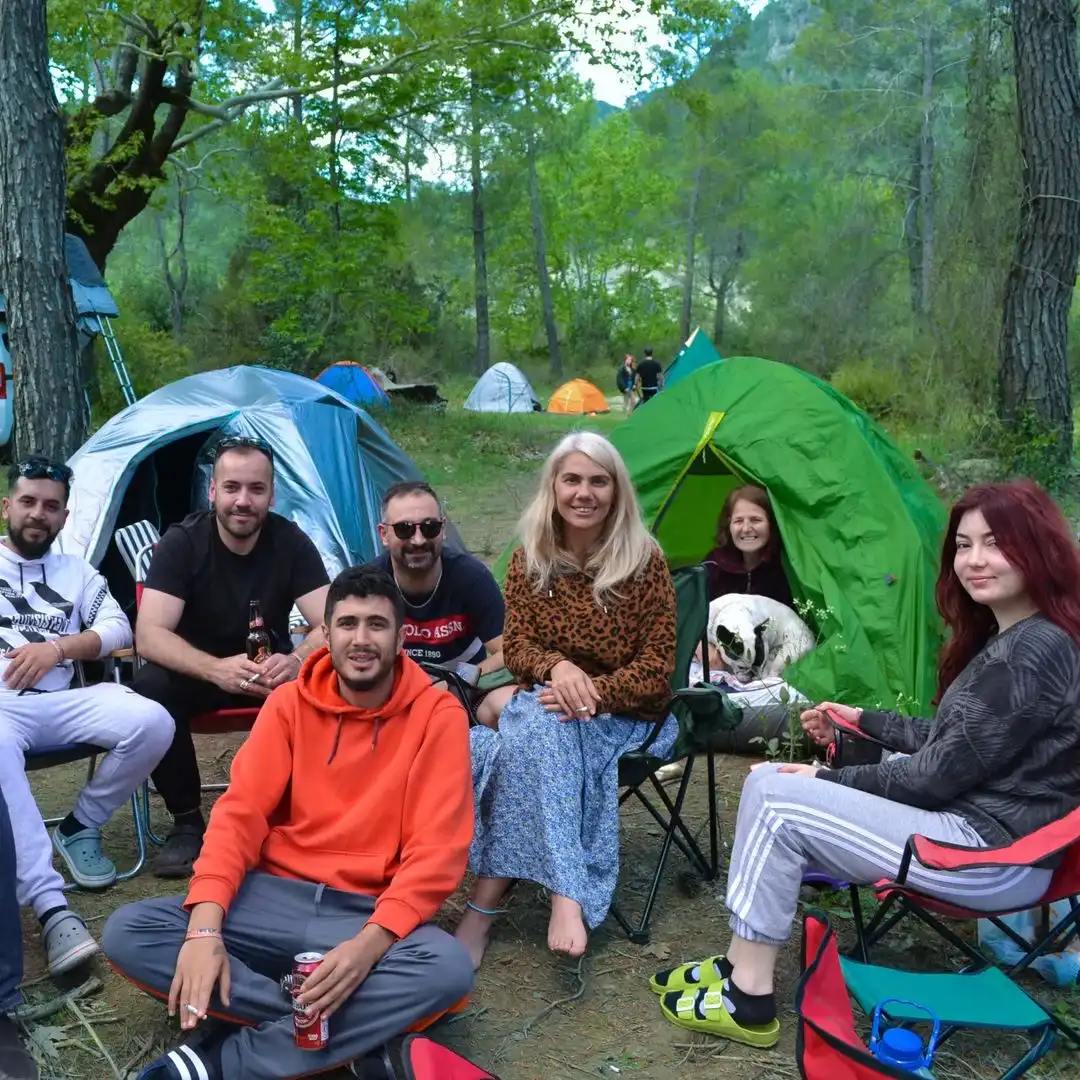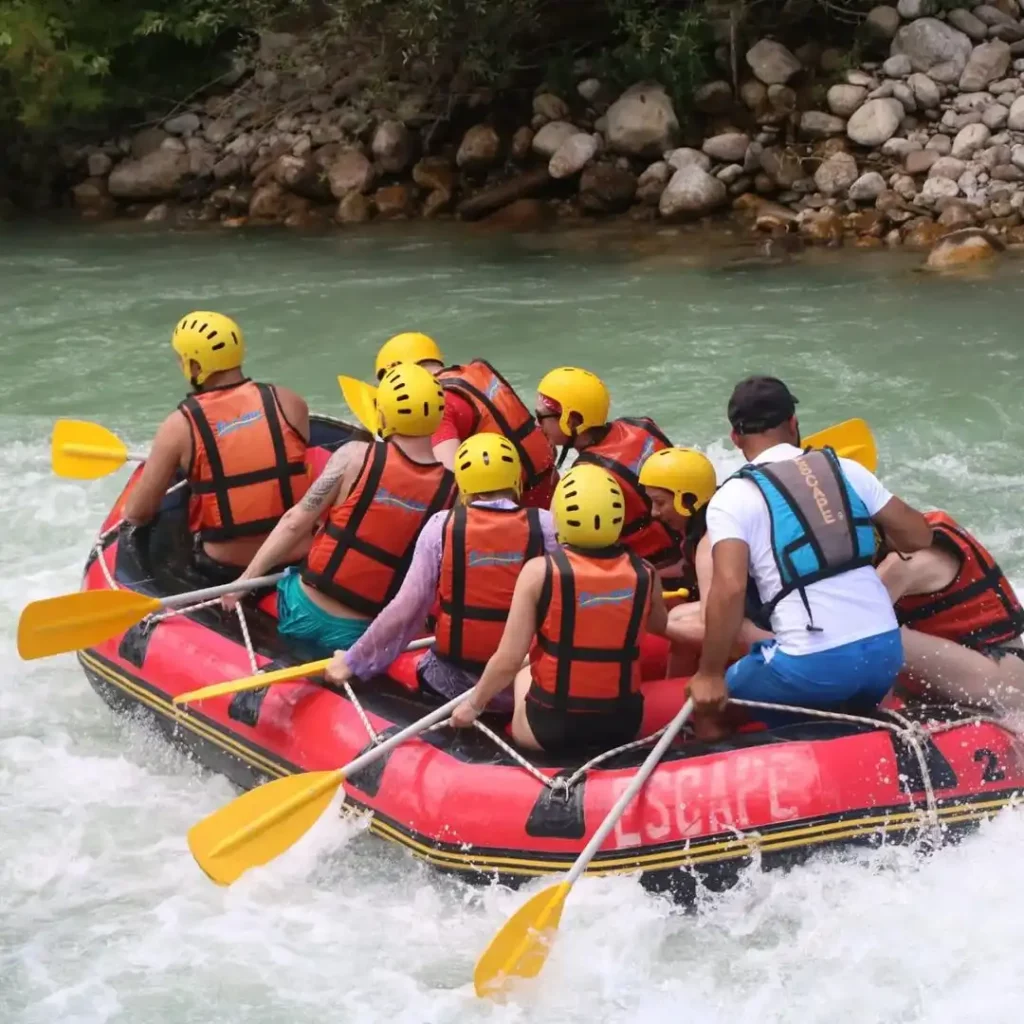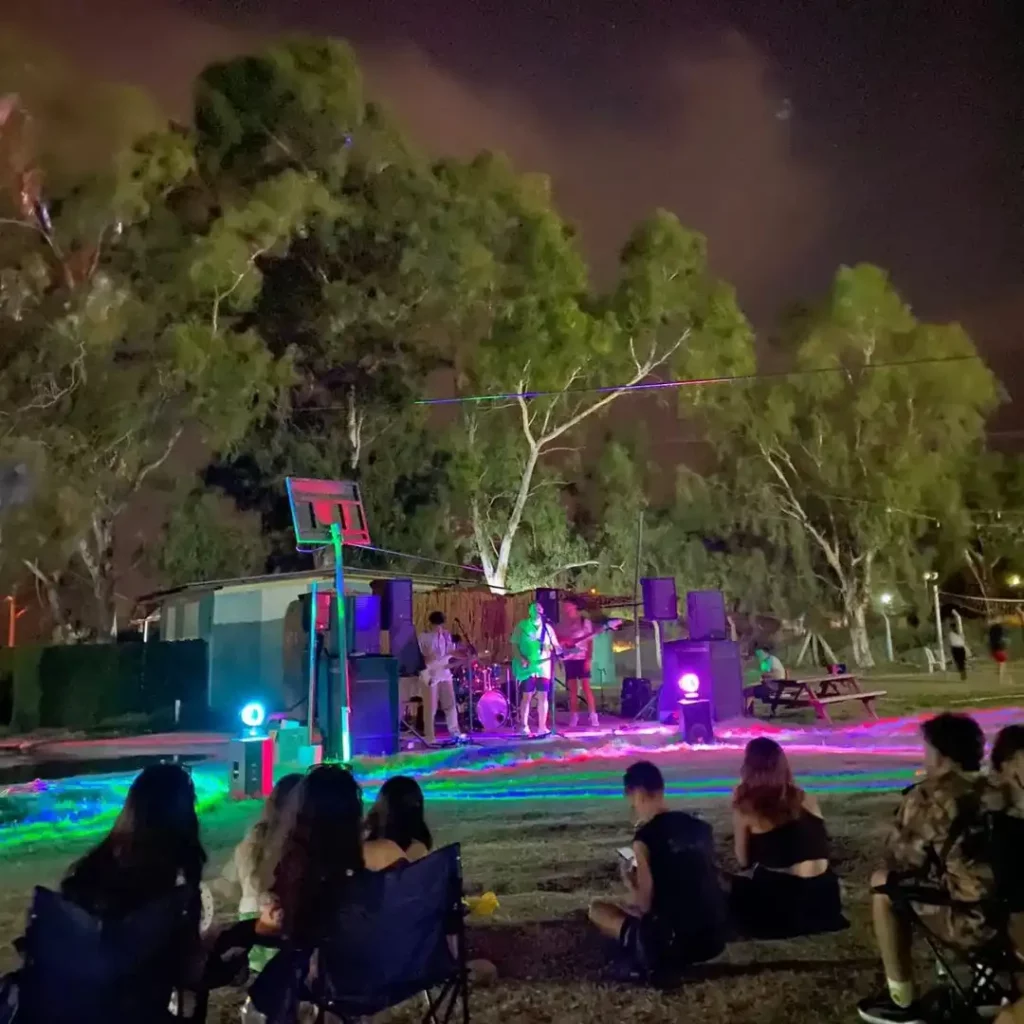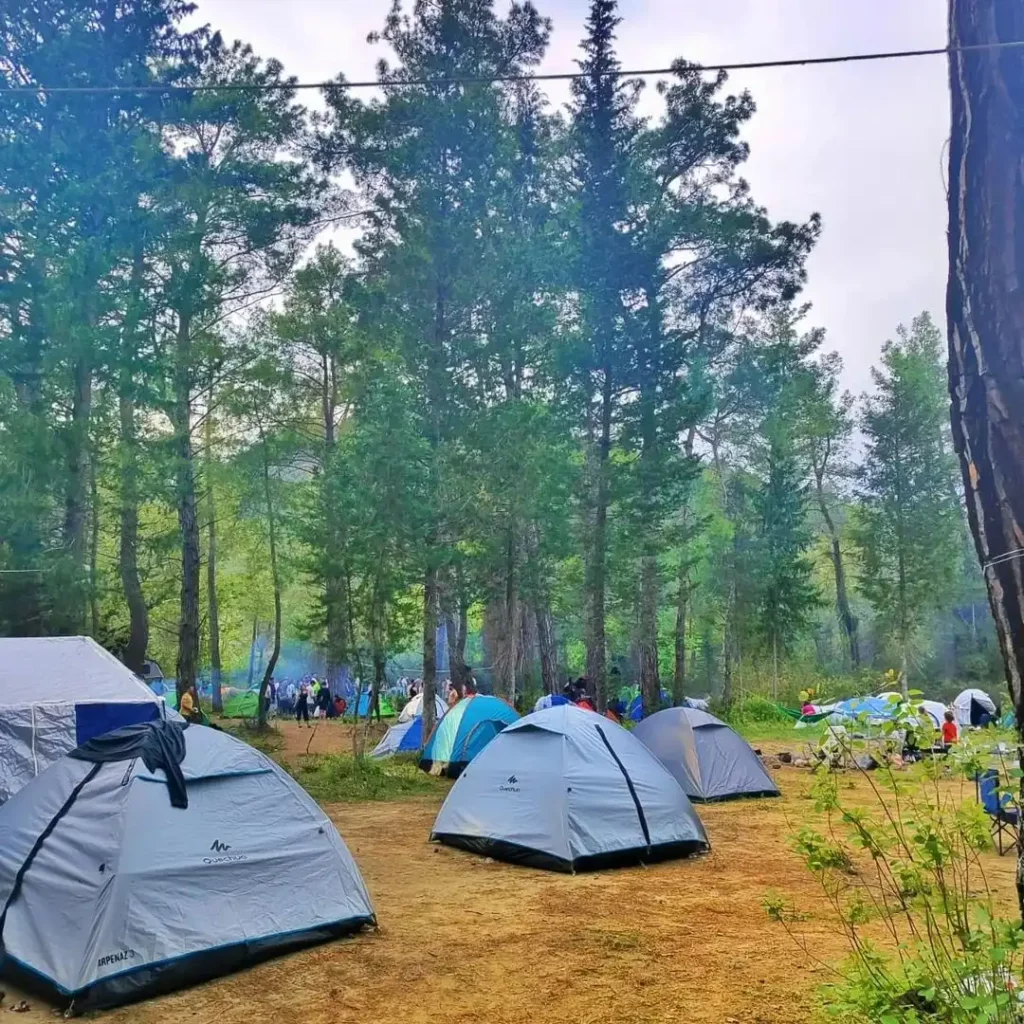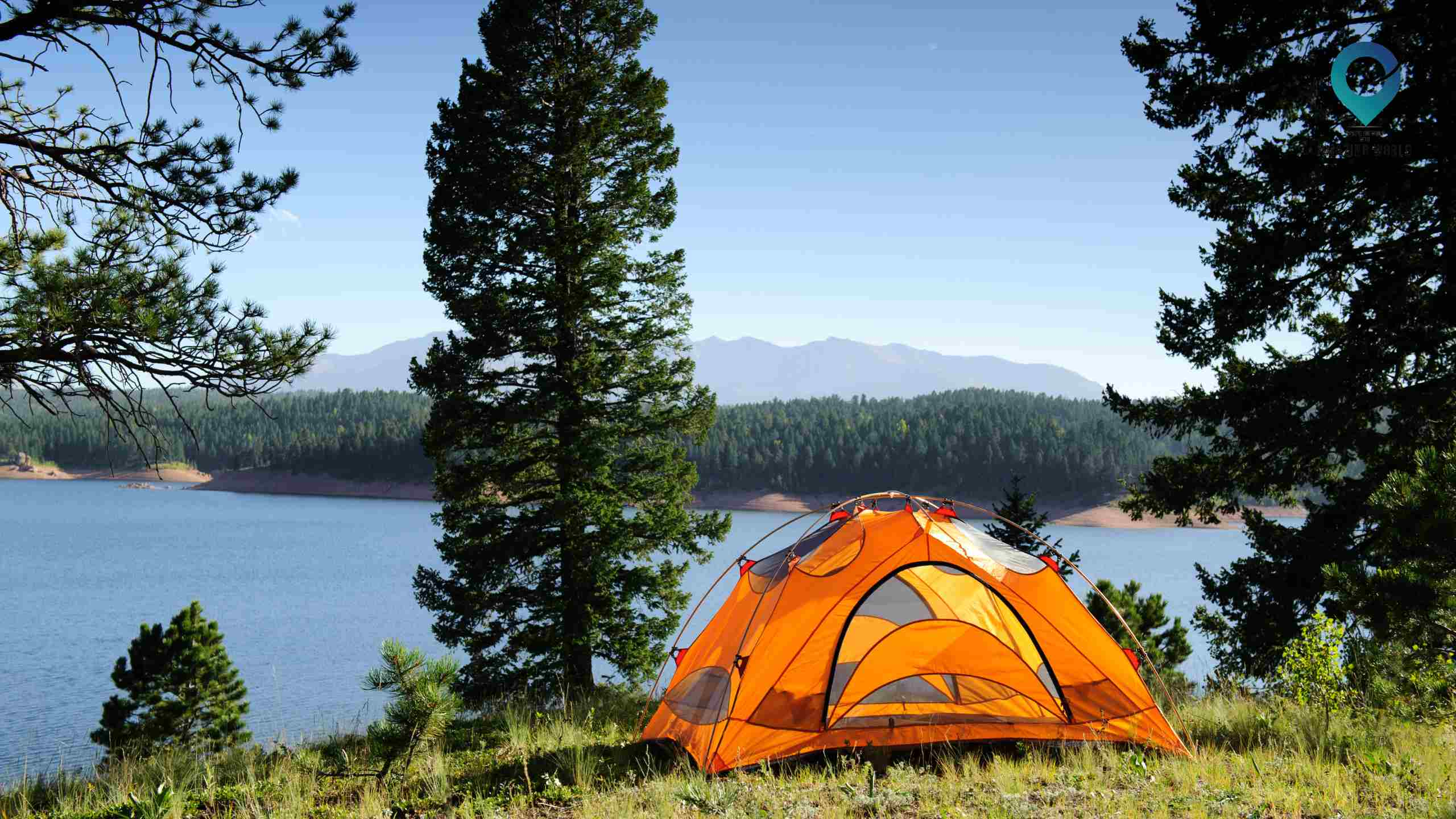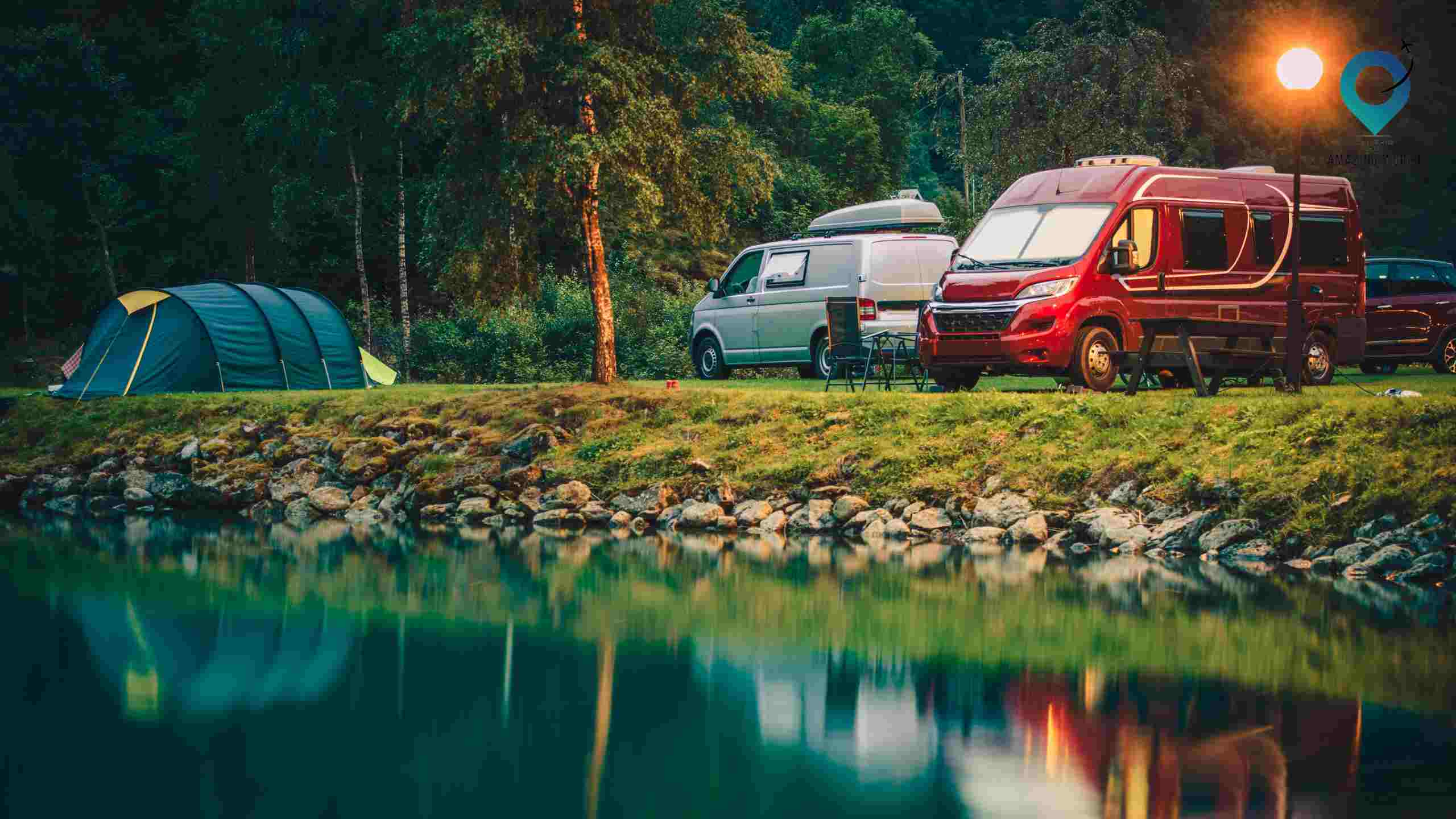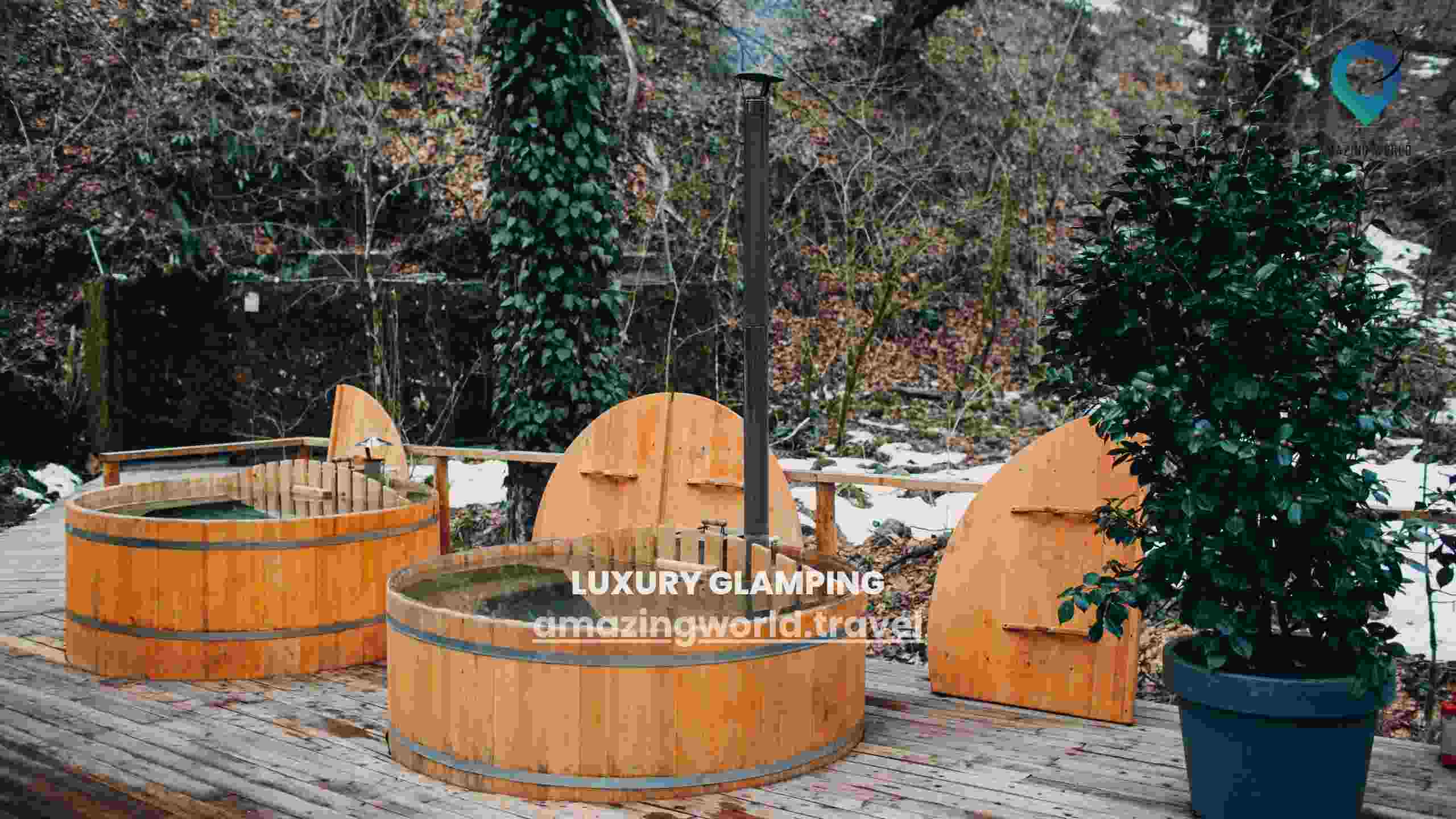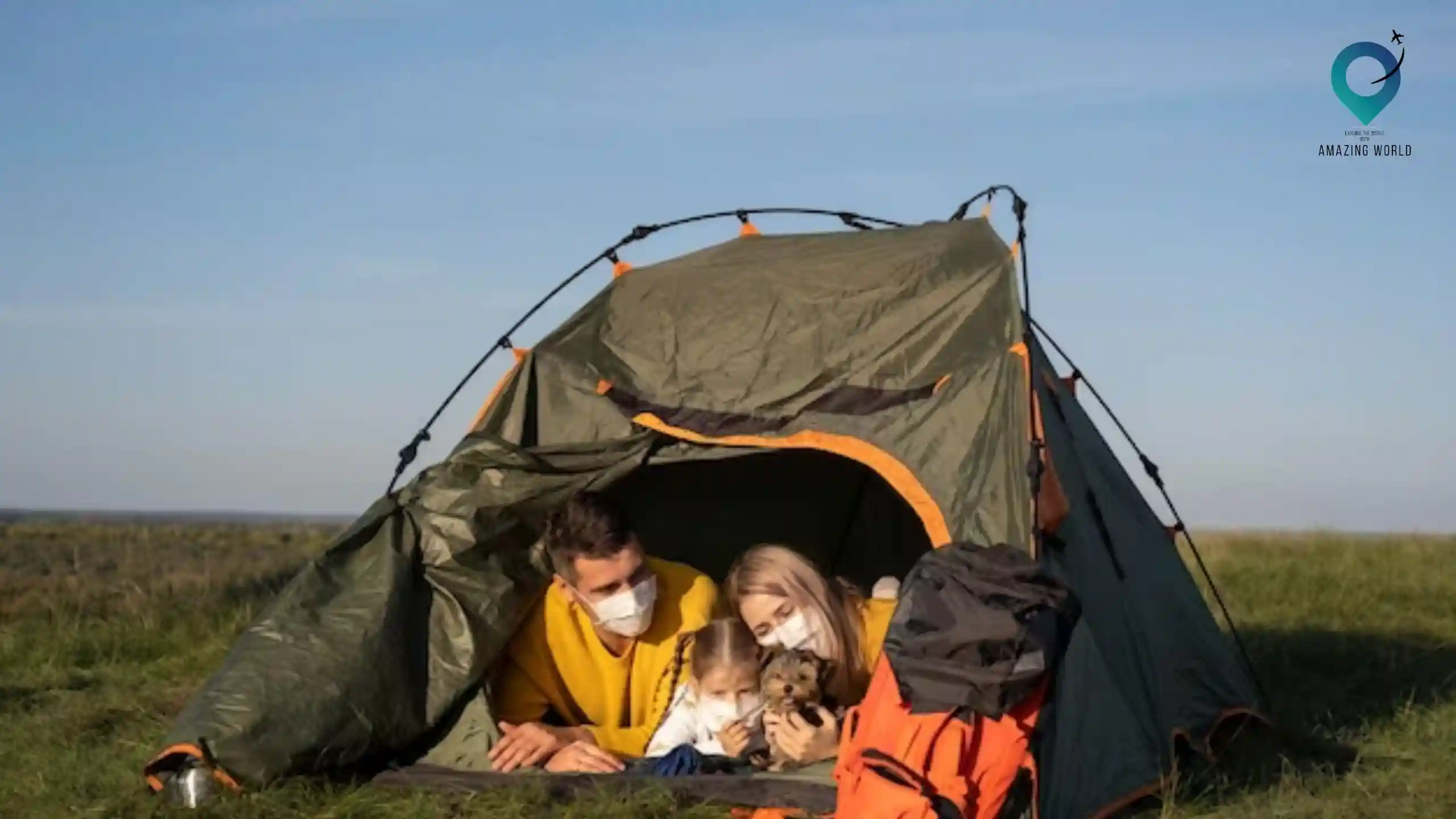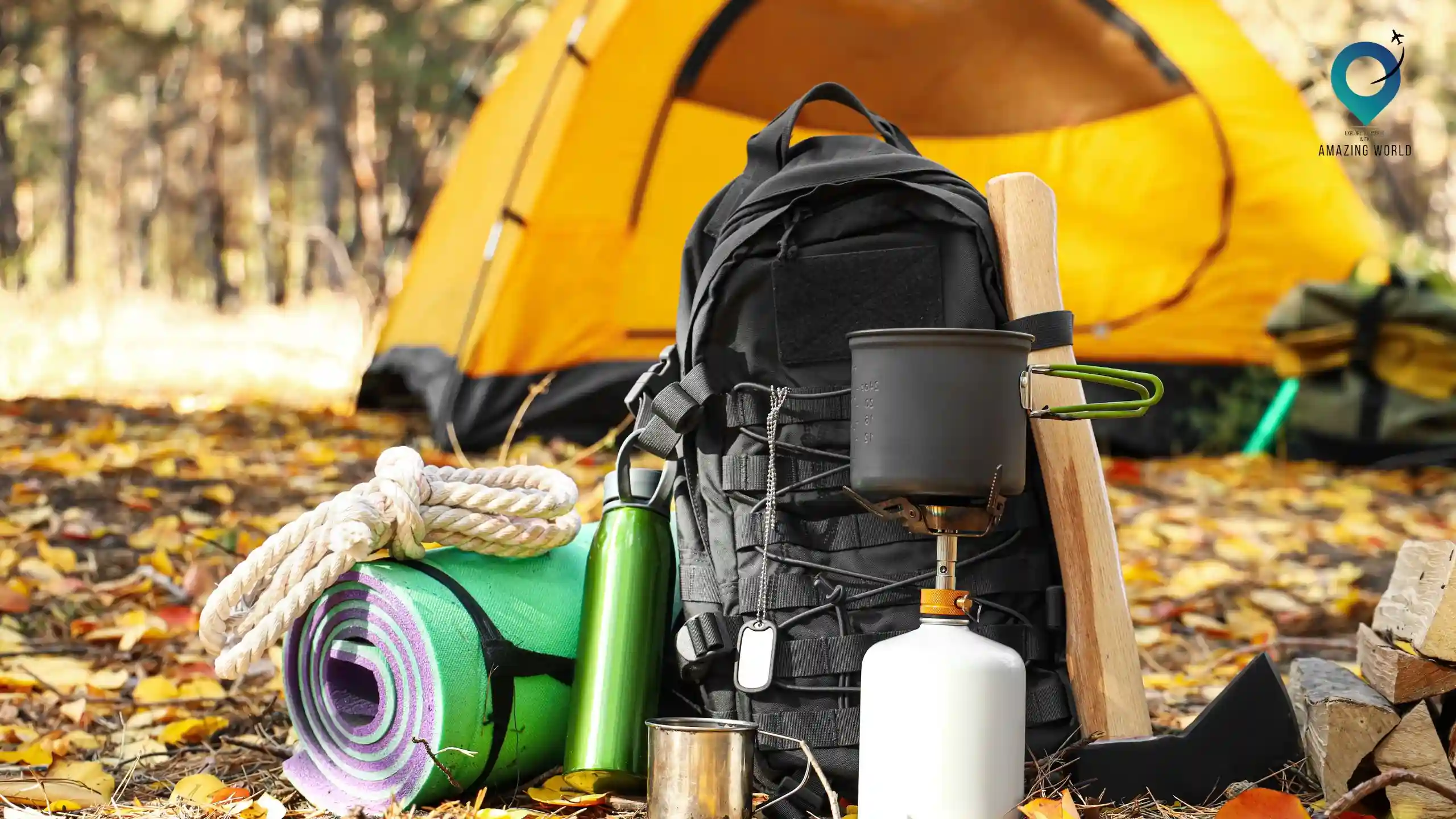Camping for Mental Health | The Transformative Power of Camping on Mental Well-Being
Table of Contents
Toggle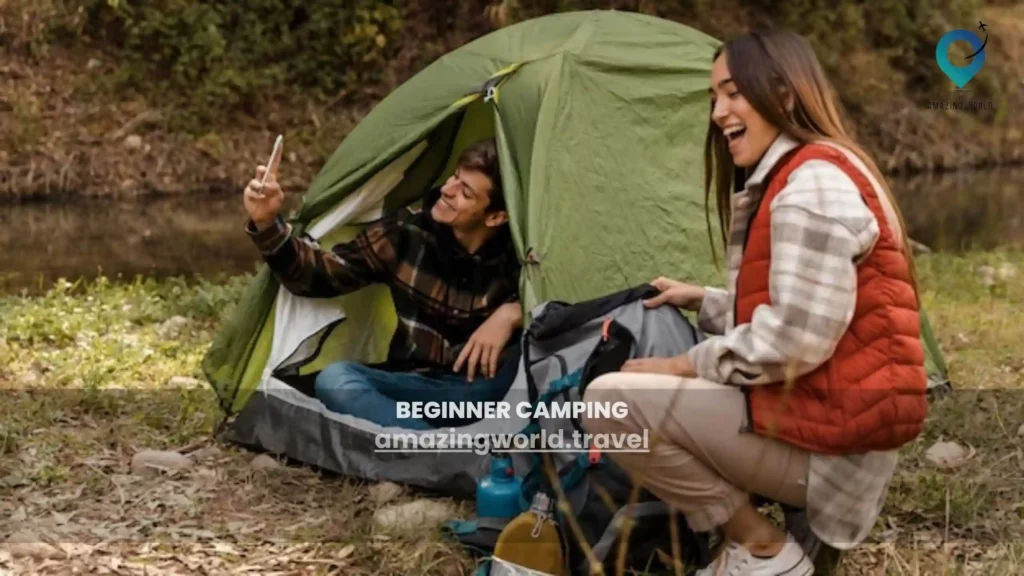
In a world saturated with screens and schedules, where the demands of daily life rarely pause for a breath, the allure of escaping to the great outdoors has never been more potent. Enter camping, the ultimate antidote to the chaos of modern living. As stress mounts and mental well-being becomes a paramount concern, the age-old practice of camping emerges as a sanctuary for unplugging and unwinding.
This article embarks on a journey through the transformative power of camping on mental health, delving into the myriad ways that communing with nature fosters a renaissance of the mind and spirit. Here are some ways in which camping can positively impact mental well-being:
Stress Reduction: Camping’s Impact on Easing Stress
Camping offers a serene escape from the relentless demands of modern life. The act of immersing oneself in nature’s beauty creates an atmosphere conducive to stress reduction. Here’s how camping helps individuals find relief from stress:
- Natural Serenity: Surrounded by lush greenery, chirping birds, and the gentle rustling of leaves, campers are enveloped in a peaceful environment that contrasts sharply with the urban hustle.
- Disconnecting from Worries: By distancing themselves from daily worries and responsibilities, campers find it easier to let go of stressors that may have been weighing them down.
- Mindful Engagement: The slower pace of camping promotes mindfulness, encouraging individuals to be fully present in the moment rather than fretting about the past or worrying about the future.
- Freedom from Digital Distractions: Camping presents an opportunity to disconnect from screens and devices, reducing the constant barrage of notifications and information that often contribute to stress.
- Therapeutic Effects of Nature: The sights, sounds, and smells of nature have a soothing impact on the nervous system, triggering the release of relaxation-inducing hormones.
Camping serves as a therapeutic retreat that fosters an environment of tranquility and relaxation, making it an effective way to alleviate stress and recharge one’s mental state.
Exposure to Nature: Nature’s Influence on Mental Well-Being
Spending time in natural environments has a profound effect on mental well-being. The sensory experience of being surrounded by nature’s elements contributes to an enhanced sense of contentment and calmness:
- Visual Serenity: The visual appeal of natural landscapes, from sprawling meadows to serene lakeshores, elicits feelings of awe and wonder that can elevate mood and reduce anxiety.
- Auditory Soothing: The gentle rustling of leaves, the babbling of brooks, and the distant calls of birds create an auditory backdrop that calms the mind and lowers stress levels.
- Tactile Connection: The opportunity to touch natural textures like soft moss, rough bark, or cool water allows campers to connect with the physical world in a way that modern life often lacks.
- Sensory Mindfulness: Engaging multiple senses in nature stimulates mindfulness, grounding individuals in the present moment and redirecting their focus away from stressors.
- Biophilia Effect: Biophilia, the innate human tendency to connect with nature, plays a role in the emotional benefits of exposure to natural environments, promoting a sense of belonging and well-being.
Camping amplifies these sensory experiences, offering a therapeutic encounter with nature that nurtures mental health and emotional balance.
Physical Activity: The Physical Benefits of Camping Adventures
Camping isn’t just about sitting by the campfire; it often involves engaging in various physical activities that contribute to mental well-being:
- Hiking Exploration: Exploring trails and hiking through natural landscapes not only provides a cardiovascular workout but also exposes campers to the wonders of the outdoors, boosting mood.
- Outdoor Games: From frisbee to volleyball, outdoor games encourage physical movement while fostering a sense of playfulness and camaraderie with fellow campers.
- Swimming and Water Activities: If camping near water bodies, swimming, kayaking, or fishing engage different muscle groups and provide a refreshing way to stay active.
- Endorphin Release: Physical activities during camping stimulate the release of endorphins, neurotransmitters responsible for feelings of happiness and euphoria.
- Achievement and Mastery: Successfully navigating challenging terrains or completing physically demanding activities can boost self-esteem and foster a sense of accomplishment.
By integrating physical activities into the camping experience, individuals not only improve their physical fitness but also enhance their mental well-being through the release of natural mood-enhancing chemicals.
Sunlight and Vitamin D: The Sun’s Role in Mental Wellness
Camping exposes individuals to the sun’s natural light, contributing to mental health in various ways:
- Circadian Rhythm Regulation: Natural sunlight helps regulate the body’s internal clock, promoting healthy sleep patterns and improving overall mood stability.
- Vitamin D Synthesis: Sunlight triggers the body’s production of vitamin D, a nutrient linked to lower rates of depression and a more positive mental outlook.
- Mood Enhancement: Exposure to sunlight prompts the release of serotonin, a neurotransmitter associated with feelings of happiness and well-being.
- Morning Sun Rituals: Waking up to the gentle rays of the sun during camping can positively impact the body’s wakefulness and help combat symptoms of seasonal affective disorder.
Camping provides an ideal opportunity to bask in natural sunlight, reaping its mental health benefits while enjoying the outdoors.
Digital Detox: The Freedom of Unplugging
Camping offers a valuable break from the digital world, contributing to improved mental well-being:
- Escape from Information Overload: Stepping away from constant notifications and information overload allows the mind to clear and focus on the immediate environment.
- Increased Presence: Without the distraction of screens, individuals become more present in conversations, activities, and the beauty of nature around them.
- Enhanced Communication: Digital detox encourages face-to-face interactions and deeper conversations, fostering stronger interpersonal connections.
- Reduced Stress: Disconnecting from the digital realm reduces stressors associated with work, social media, and information overload, resulting in a calmer state of mind.
- Mindful Moments: The absence of screens enables campers to engage in mindfulness, fully savoring the sights, sounds, and sensations of the natural world.
Camping serves as a therapeutic retreat from the digital chaos, allowing individuals to rejuvenate their mental state and reconnect with themselves and others.
Social Connection: Building Bonds Through Camping
Camping brings people together in a unique way, fostering meaningful social connections and positively impacting mental well-being:
- Shared Experiences: Participating in camping activities, cooking meals over a campfire, and exploring nature together create shared memories that deepen bonds.
- Quality Time: Away from the distractions of daily life, camping allows for focused, quality time with loved ones, leading to stronger connections.
- Campfire Conversations: Gatherings around the campfire encourage storytelling and meaningful conversations, promoting a sense of belonging and camaraderie.
- Supportive Network: Being surrounded by friends or family in an outdoor setting provides a supportive network that can help reduce feelings of loneliness.
- Boosted Mood: Positive social interactions during camping release oxytocin, the “bonding hormone,” contributing to increased feelings of happiness and well-being.
Camping presents an ideal backdrop for creating lasting memories and forging deeper connections with others, ultimately contributing to improved mental health.
Mindfulness and Reflection: Finding Peace in the Present Moment
Camping’s unhurried environment encourages mindfulness, which fosters a sense of inner peace and mental clarity:
- Absence of Distractions: Removing from the noise and demands of modern life, campers can focus on the beauty of nature and their own thoughts.
- Connection with Surroundings: Mindful engagement with nature’s sights, sounds, and textures promotes a sense of groundedness and heightened awareness.
- Reflective Opportunities: The slower pace of camping invites self-reflection, allowing individuals to contemplate life, goals, and personal aspirations.
- Emotional Reset: Mindfulness during camping can lead to emotional rejuvenation, providing a break from stressors and mental clutter.
- Stress Reduction: Practicing mindfulness reduces stress hormone levels, leading to a more relaxed mental state and improved overall well-being.
Camping offers a serene environment for individuals to practice mindfulness, fostering a sense of calm and introspection that positively impacts mental health.
Improved Sleep: Nature’s Influence on Restful Nights
Camping’s natural setting contributes to better sleep, a cornerstone of mental health Fitness:
- Natural Light Regulation: Exposure to natural sunlight during the day helps regulate the body’s internal clock, promoting healthy sleep-wake cycles.
- Reduction of Artificial Light: The absence of artificial lighting allows the body’s natural melatonin production to increase, improving sleep quality.
- Relaxing Soundscapes: Gentle sounds of nature, like flowing water or rustling leaves, can act as white noise, aiding relaxation and sleep.
- Physical Activity Contribution: Engaging in outdoor activities during the day can lead to increased physical fatigue, promoting deeper and more restorative sleep.
- Circadian Alignment: Camping helps realign circadian rhythms with the natural light-dark cycle, resulting in a more natural sleep pattern.
Camping provides an environment conducive to restful sleep, which in turn supports mental well-being by enhancing mood, cognitive function, and overall vitality.
Sense of Achievement: Conquering Challenges and Building Confidence
Camping encourages individuals to overcome challenges and experience a sense of achievement that positively impacts mental well-being:
- Skill Mastery: Learning essential camping skills such as setting up a campsite, building a fire, and navigating the wilderness instills a sense of accomplishment.
- Problem-Solving: Overcoming obstacles in a rustic environment requires creative thinking and problem-solving, boosting cognitive function and self-esteem.
- Boosted Self-Efficacy: Successfully completing outdoor tasks enhances self-confidence and self-efficacy, contributing to a more positive self-perception.
- Resilience Building: Facing and conquering challenges during camping promotes resilience, the ability to bounce back from adversity and handle stress effectively.
- Personal Growth: The sense of achievement gained from conquering camping challenges fosters personal growth and a belief in one’s ability to overcome obstacles.
Camping’s hands-on experiences offer a unique opportunity to develop skills, build confidence, and embrace challenges, ultimately promoting mental strength and well-being.
Sense of Adventure: Embracing Novelty and Excitement
Camping introduces an element of adventure that uplifts the spirit and contributes to a positive mindset:
- Exploration and Curiosity: Exploring new environments, trying unfamiliar activities, and discovering hidden gems during camping spark curiosity and a sense of wonder.
- Positive Anticipation: The excitement of planning a camping trip and the anticipation of adventure trigger the release of dopamine, enhancing mood.
- The thrill of the Unknown: Facing the unknown in a camping setting, such as unpredictable weather or uncharted trails, fosters adaptability, and a resilient mindset.
- Breaking Routine: Camping disrupts the monotony of daily life, infusing a sense of excitement and novelty that can carry over into overall positivity.
- Elevated Perspective: Viewing life through the lens of adventure encourages a more optimistic outlook, making challenges seem like opportunities for growth.
Camping taps into the human desire for exploration and novelty, igniting a sense of adventure that contributes to an uplifted mental state.
Conclusion
In the embrace of nature’s beauty, camping offers a transformative journey for mental well-being. Through stress reduction, exposure to nature, physical activity, and the freedom of a digital detox, campers can rejuvenate their minds and spirits. The connections forged through social interaction, the mindfulness cultivated, the quality of sleep attained, and the personal achievements gained during camping contribute to an enhanced sense of mental wellness. Moreover, the sense of adventure that accompanies camping infuses life with excitement and positivity.
As you embark on your own camping journey, remember that each experience can provide respite from the demands of modern life and uplift your mental state and promote a holistic sense of well-being. Whether you’re seeking refuge from stress, connection with nature, or personal growth, camping is a timeless method for enhancing mental health and embracing a more fulfilling and balanced life.
How much did you like Our detailed Camping for Mental Health | The Transformative Power of Camping on Mental Well-Being? Review Also, please share these Blogs with your friends on social media.
Related Article –
- Road Trips Ideas | 12 Tips to Prepare Your Car for a Long Road Trip?
- 150 Best Places to Visit in the United States In 2023
- Road Trip With Kids
- How to Stay Awake While Driving Long Distances
- Audiobooks to Listen to On Your Road Trip
- How to Create an Epic Itinerary Road Trip
- Best Rental Cars For Travel Adventures
Camping for Mental Health (FAQs)
How long should a camping trip be to experience these benefits?
Camping benefits can be felt even over a weekend, but longer trips provide more time to fully disconnect and immerse oneself in nature’s therapeutic environment.
What if I’m not a fan of traditional camping? Are there alternatives?
Glamping (glamorous camping) offers a more comfortable camping experience with modern amenities while still providing access to nature’s benefits.
How does camping affect children’s mental well-being?
Camping exposes children to the wonders of nature, promotes outdoor play, and encourages family bonding, all of which contribute positively to their mental development.
Are there specific types of camping that offer better mental health benefits?
All forms of camping, from backpacking to car camping, offer mental health benefits. Choose the type that aligns with your preferences and comfort level.
Can camping help with long-term stress and anxiety?
Yes, the combination of stress reduction, nature exposure, physical activity, and mindfulness during camping can contribute to managing long-term stress and anxiety.

Meet David Hoper, a passionate travel Blog writer with 7+ years of experience in travel content. Through his exemplary storytelling and engaging narratives, he shares his experiences and brings destinations to life. With a keen eye for detail and a love for exploration, he has cultivated a diverse portfolio of travel blogs that inspire and inform readers worldwide.
